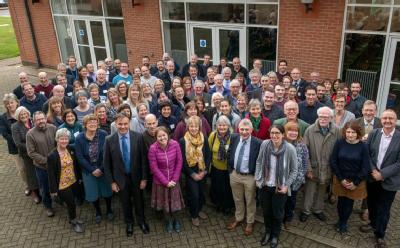Departmental news
Lockdown staff and students at University of Warwick to help with wildlife surveys
Members of the Warwick community who are living on campus during lockdown have the opportunity to help survey wildlife for a biodiversity project.
The Joy of Seeds
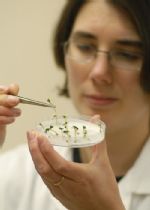 'Seeds are little bundles of future potential'. Find out about the wonders of seeds from Dr Charlotte Allender.
'Seeds are little bundles of future potential'. Find out about the wonders of seeds from Dr Charlotte Allender.
Read the Knowledge Centre article.
Arctic's Global Seed Vault to receive 1000 types of seeds from Warwick's Vegetable Genebank
Just under 1000 seed samples from different crop species including kale, carrots and cauliflower are to be deposited at the Svalbard Global Seed Vault in Arctic Norway on Tuesday 25 February 2020, from the UK Vegetable Genebank (UKVGB) at the University of Warwick Wellesbourne campus.
The Vegetables of Christmas Future
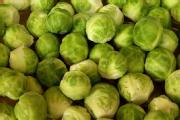 If you think about a traditional Christmas dinner, there’s turkey with pigs in blankets, or maybe you prefer a nut roast. But the rest is vegetables. A large proportion of our plate should be covered in vegetables, and the standard winter varieties, like carrots and sprouts, are grown very successfully in the UK.
If you think about a traditional Christmas dinner, there’s turkey with pigs in blankets, or maybe you prefer a nut roast. But the rest is vegetables. A large proportion of our plate should be covered in vegetables, and the standard winter varieties, like carrots and sprouts, are grown very successfully in the UK.
But will this always be the case? Climate change is bringing with it new challenges as well as making known pests and diseases more difficult to tackle. Scientists at Warwick's Crop Centre, are working to understand the pests and diseases of the some of the UK’s major crops and developing, using traditional plant breeding and genetic expertise, new resistant varieties.
Seed collection conserves genetic diversity of vegetables
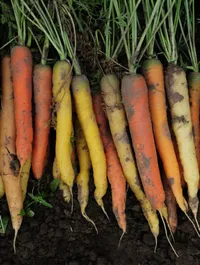 Listen to Dr Charlotte Allender discuss the need to conserve the genetic diversity of vegetables, and how this is being done at the University of Warwick's seed bank facility.
Listen to Dr Charlotte Allender discuss the need to conserve the genetic diversity of vegetables, and how this is being done at the University of Warwick's seed bank facility.
Radio discussion (28 Sept 2019)
The Warwick Genetic Resources Unit houses the UK Vegetable Genebank, a globally significant collection of around 14,000 seed samples of a range of vegetable crops.
New awards target breakthrough technologies to enhance food security
A recent collaboration between the BBSRC, the National Science Foundation (NSF) and the US Department of Agriculture's National Institute of Food and Agriculture (NIFA) is helping researchers potentially advance technology that brings more security to crop agriculture of the future. Dr Stephen Jackson and Dr Jose Gutierrez-Marcos are amongst those receiving funding.
Phenom UK 2019
On Monday 22 July, researchers from the University of Sheffield, Rothamsted Research and the University of Nottingham attended a networking event at the University of Warwick Wellesbourne campus. The event was organised by Dr Beatriz Lagunas and sponsored by Phenom UK (‘Technology Touching Life programme funded jointly by BBSRC/EPSRC/MRC). In the morning, visitors enjoyed a guided tour around the field research facility including the pathogen quarantine fields, insect pest trial area, the low nutrient field, and the main rotation fields for irrigated trials. In the afternoon, a round table discussion focused on the challenges of field-based phenotyping.
The breadth of expertise amongst participants allowed discussion of ideas for relating aerial spectral imaging of the crop canopy with below-ground differences in soil nutrient/root/microbe interactions. The consensus was that pilot data is needed in a specific crop from small-scale controlled experiments to identify disease signature wavelengths and then move to field phenotyping based, for example using drone-based imaging in collaboration with both the University of Sheffield and Rothamsted Research. The PhenomUK website will provide a useful forum for further discussions. All Warwick people interested in following up the discussions are encouraged to do it through the Plant & Crop Science Theme and to register at the Phenom UK website.
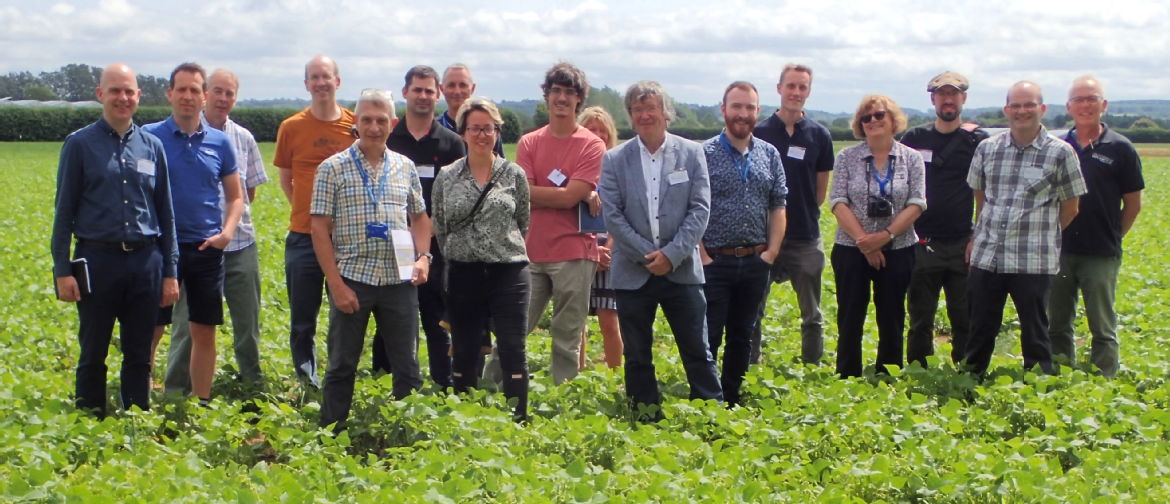
Phenom UK networking visit attendants standing in a field of haricot beans (from left to right):
Craig Sturrock (U. of Nottingham), Patrick Schäfer (U. of Warwick), Rob Lillywhite (U. of Warwick), Stephen A. Rolfe (U. of Sheffield), Graham Teakle (U. of Warwick), Gabriel Castrillo (U. of Nottingham), John Clarkson (U. of Warwick), Beatriz Lagunas (U. of Warwick), Guilhem Reyt (U. of Nottingham), Sally Mann (U. of Warwick), Malcolm Hawkesford (Rothamsted Research), Alexander McCormack (U. of Warwick), Tim Mauchline (Rothamsted Research), Rosemary Collier (U. of Warwick), Joost H.M. Stassen (U. of Sheffield), Rory Hayden (U. of Nottingham) and Eric Holub (U. of Warwick).
Construction begins on new hi-tech greenhouse at the Wellesbourne Campus
Work is underway on an innovative new greenhouse research facility at the University of Warwick’s Wellesbourne Campus. The project is a partnership between Crop Health and Protection (CHAP), one of the four UK Agritech Centres funded by Innovate UK, the innovator and developer, RIPE Building Services, and the University of Warwick, which will coordinate research through its School of Life Sciences.
It is the first major construction at Wellesbourne Campus since Warwick acquired the site in 2004. The new greenhouse will also be built in the year the site celebrates 70 years as a national centre of excellence for crop research.
The new structure, named the Natural Light Growing (NLG) Centre, is being built by RIPE using patented materials and construction technology and will allow the full spectrum of natural light through into the protective growing environment. This is expected to increase crop yield and speed of growth as well as improve qualities like taste, plant health and vigour. The beneficial effects of the full spectrum growing conditions on crop plants are not yet fully understood and the greenhouse will act as a demonstration facility and experimental hub to study several crop characteristics.
Professor Richard Napier, Director of Research at the University’s School of Life Sciences, said: “We are delighted that Wellesbourne Campus has been chosen as the location for such an innovative facility.
“Our academic crop researchers are looking forward to trialling this next generation growing environment to extend our research into crop improvement, the results of which will benefit farmers and growers and ultimately consumers.”
The new structure will be completed this month and officially opened in summer 2019.
Arctic's Global Seed Vault to receive 101 samples from Warwick's Vegetable Genebank
101 seed samples from 18 different types of crop species including onions, carrots and cauliflower are to be deposited at the Svalbard Global Seed Vault in Arctic Norway on the 31 October 2018, from the UK Vegetable Genebank (UKVGB) at the University of Warwick.

